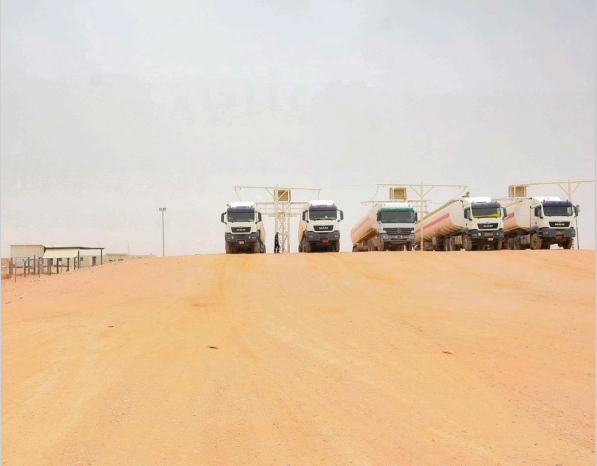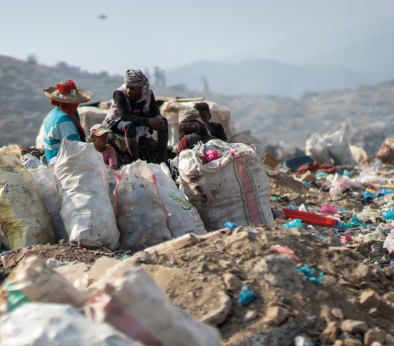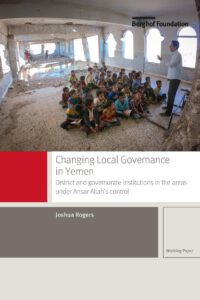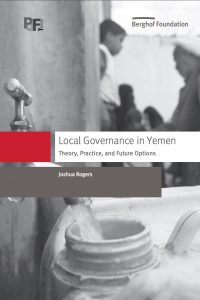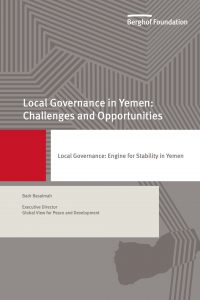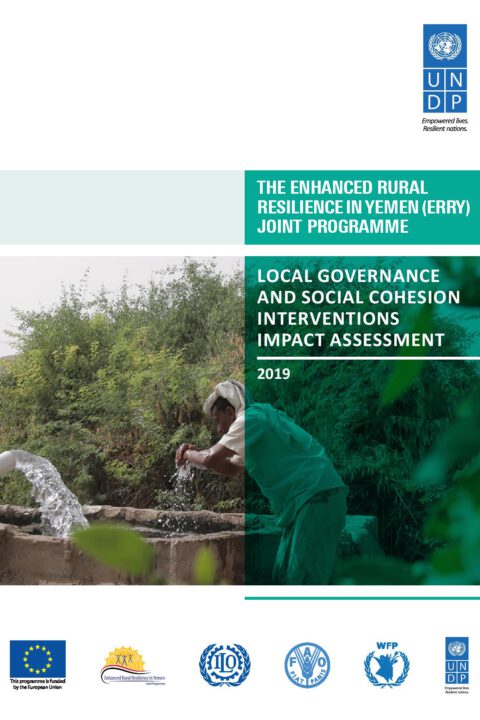
Assessment of the local governance and social cohesion interventions under the Enhanced Rural Resilience in Yemen Programme in Abyan, Hajja, Hodiedah and Lahj governorates in Yemen
This report presents the results of an assessment of the local governance and social cohesion interventions under the Enhanced Rural Resilience in Yemen (ERRY) Programme in Abyan, Hajja, Hodiedah and Lahj governorates in Yemen. The Governance and social cohesion review was commissioned to assess interventions, shift in capacities and conditions of local governance interventions at the community and district-levels, and capture the intended and unintended impact in the four governorates and targeted districts in terms of enhancing the service delivery aspects of the community-based resilience building process in the crisis context of Yemen.
To fulfil the research objectives, a combination of quantitative and qualitative assessment techniques and tools was used, including key informant interviews (KIIs), questionnaire, focus group discussions (FGDs), case studies, and structured observation. The assessment was carried out by Grassroots-Yemen during the period of 15 December 2018 – 15 January 2019. Specific impact indicators for the local governance and social cohesion work through Village Cooperative Councils (VCCs and Local Community Committees (LCCs) were utilized for this review in line with the Terms of Reference, after close consultation with the United Nations Development Programme (UNDP) programme coordination team and taking into account the views of VCCs and LCC on areas of impact.
Other resources you may be interested in:
Corruption in Hadramawt’s Electricity Sector
Analysis of the situation of the electricity sector in the governorate of Hadhramawt, highlighting problematic procurement practices to the benefit of a few influential public officials and business moguls, and calling for more accountability, transparency and oversight. Corruption in Hadramawt’s Electricity Sector
Recovering Lost Ground in Shabwa’s Oil Sector
Policy brief highlighting the pivotal role of the governorate of Shabwah in Yemen’s oil sector. It criticises the predominant role of international oil companies and the central government in Shabwah’s oil sector, and proposes a localisation, including the establishment of a local oil refinery, to meet local demands and to become more sensitive to developmental, […]
Environmental Pathways for Reconciliation in Yemen
In consultations with more than 2,400 Yemenis across nine governorates, the report explores public perceptions of environmental issues and their influence on peacemaking, as well as public support for potential environmental peacemaking solutions.



